Carne de Caça, 2020
Parte da exposição Terra de Ninguém.
"Carne de Caça lida com fogo. Mas não aquele vivo, vermelho, ativo. Ele traz um fogo no passado, fuligem preta, produzida após o apagar das chamas. Partindo de uma série de imagens que mostram tratores e escavadeiras incendiados na mata, uma prática comum nas disputas por território, Frederico escolhe, em desmanches de automóveis, fragmentos de vários veículos. As peças são queimadas, e sobre elas o artista realiza, com asfalto, um desenho geométrico, de padrões repetidos embora irregulares, já que feitos a mão livre. Os desenhos lembram – embora não imitem – uma padronagem semelhante à da pele de animais; sugerem a textura de couro esticado, como se tivessem sido retirados de um corpo de um mamífero abatido.
A caça, os vestígios do fogo, as carcaças velhas espalhadas pelo espaço. Tudo isso nos leva a modos de vida ancestrais que, durante milhares anos, foram soberanos no território brasileiro. Os automóveis e o asfalto, contudo, são signos da vida moderna, industrial, distante da natureza. O trabalho cruza esses significantes, explorando estratégias como a camuflagem e descobrindo semelhanças improváveis entre o tórax e o capô, entre as articulações e as laterais do para-lama, por exemplo."
Trecho do texto curatorial de Thaís Rivitti para a exposição.
︎︎︎
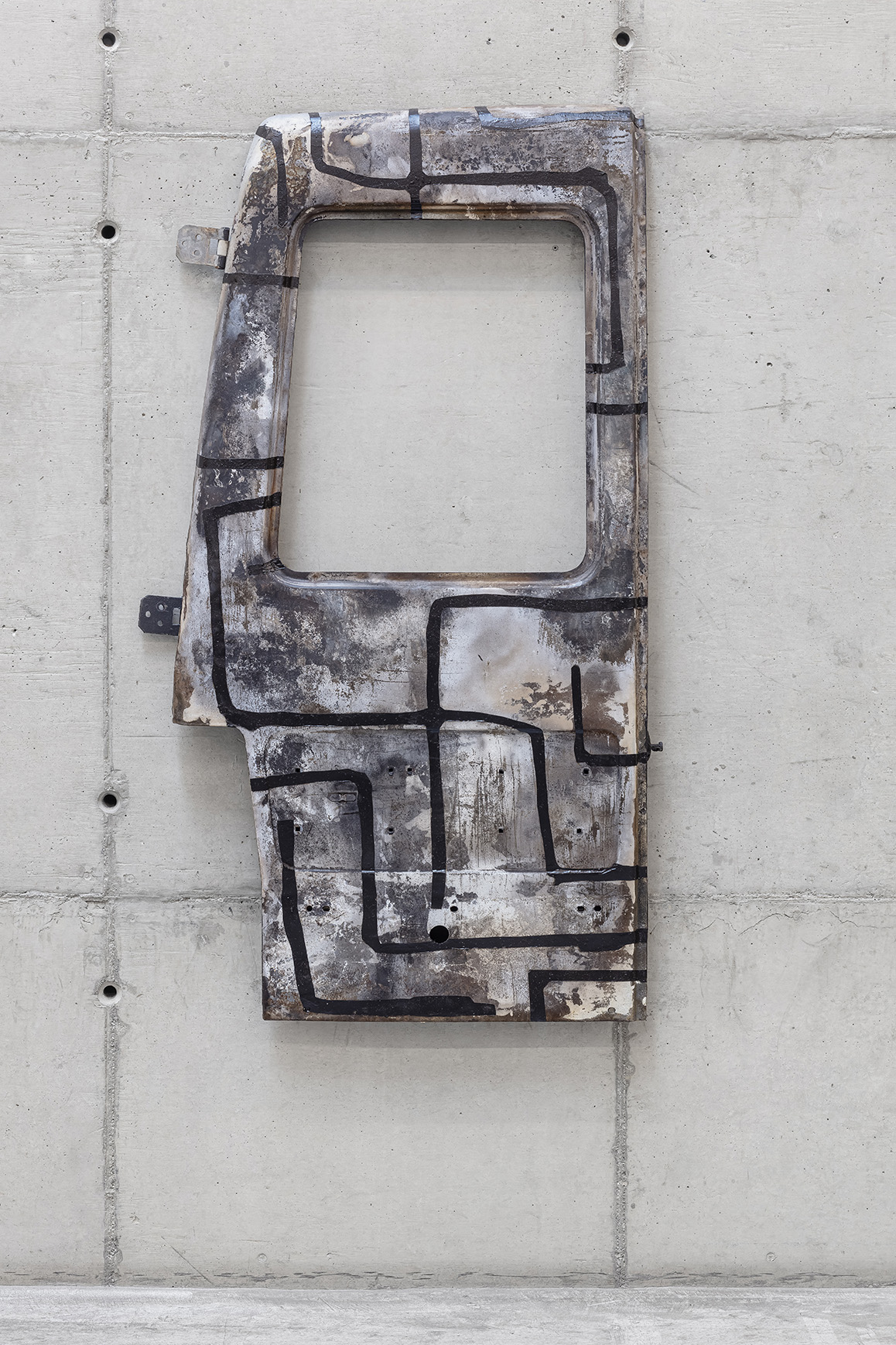


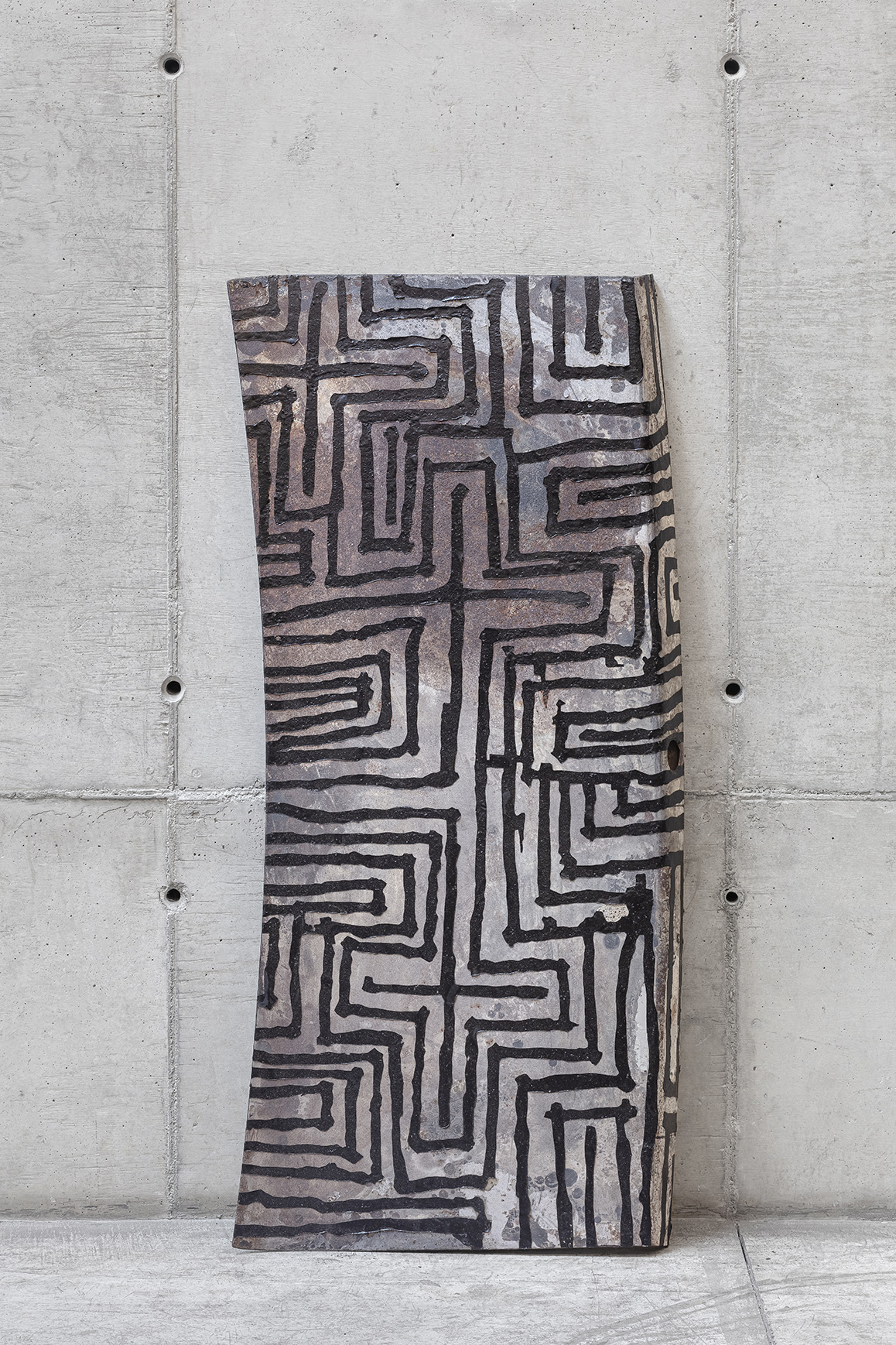
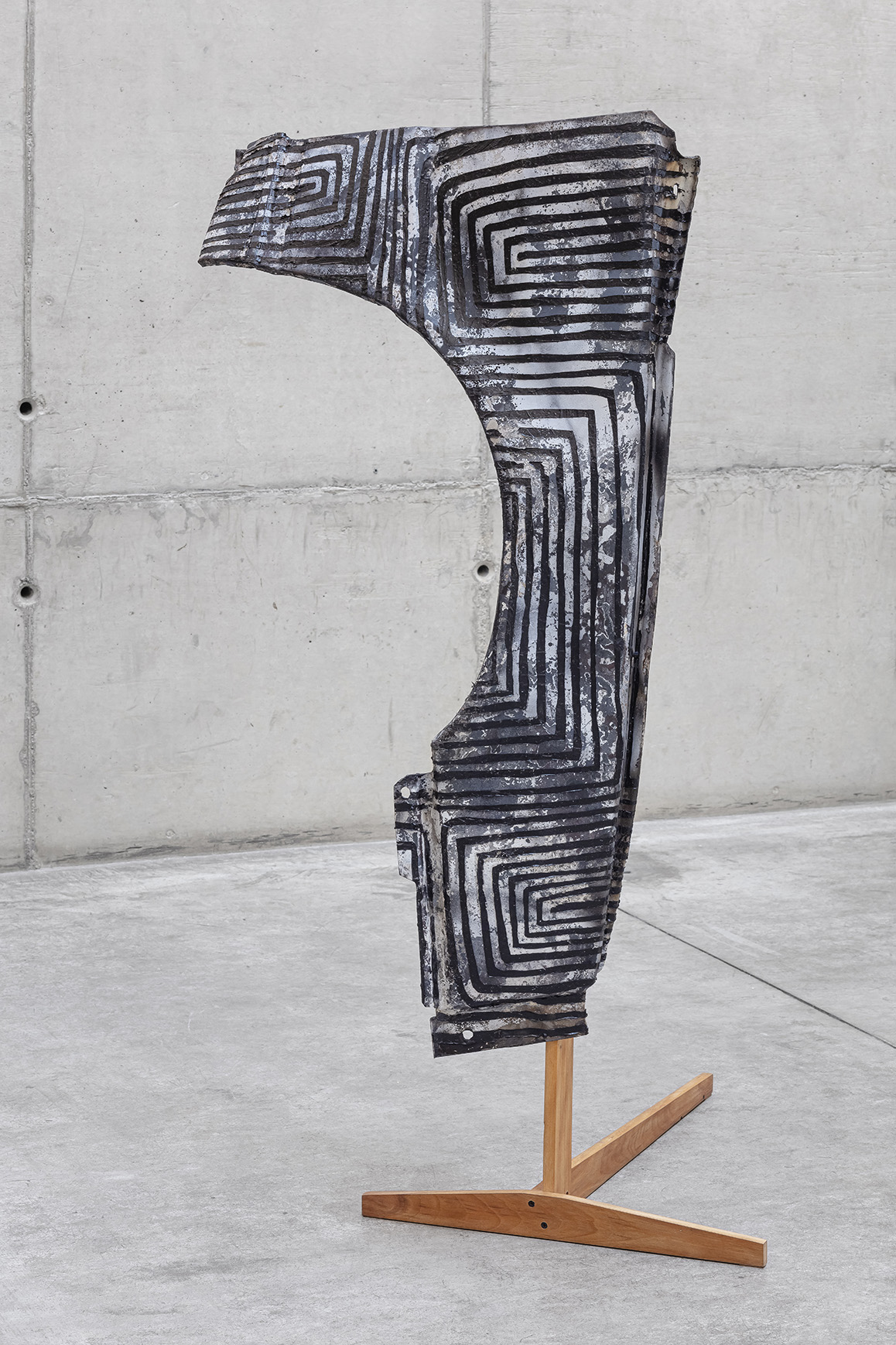
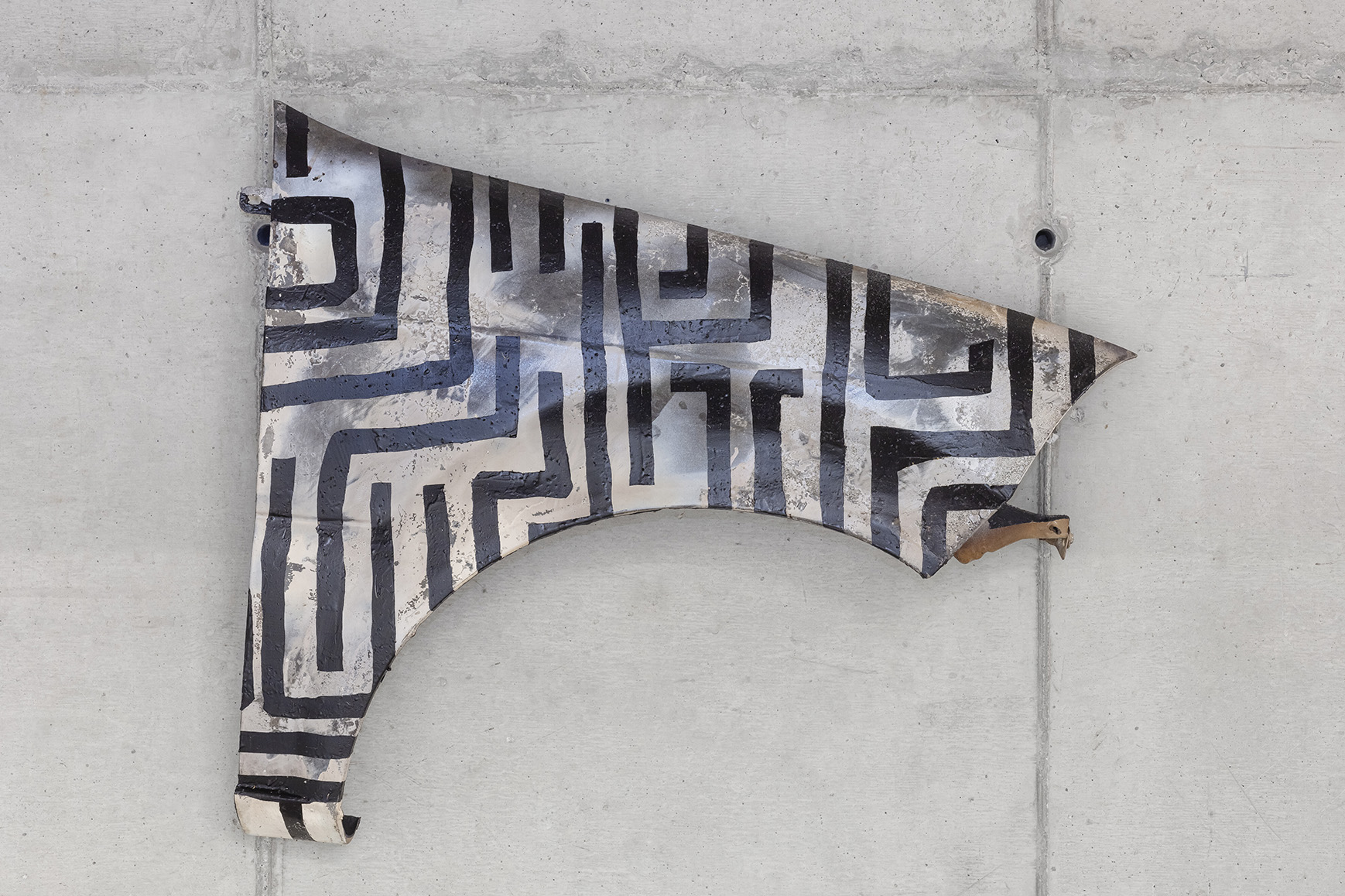
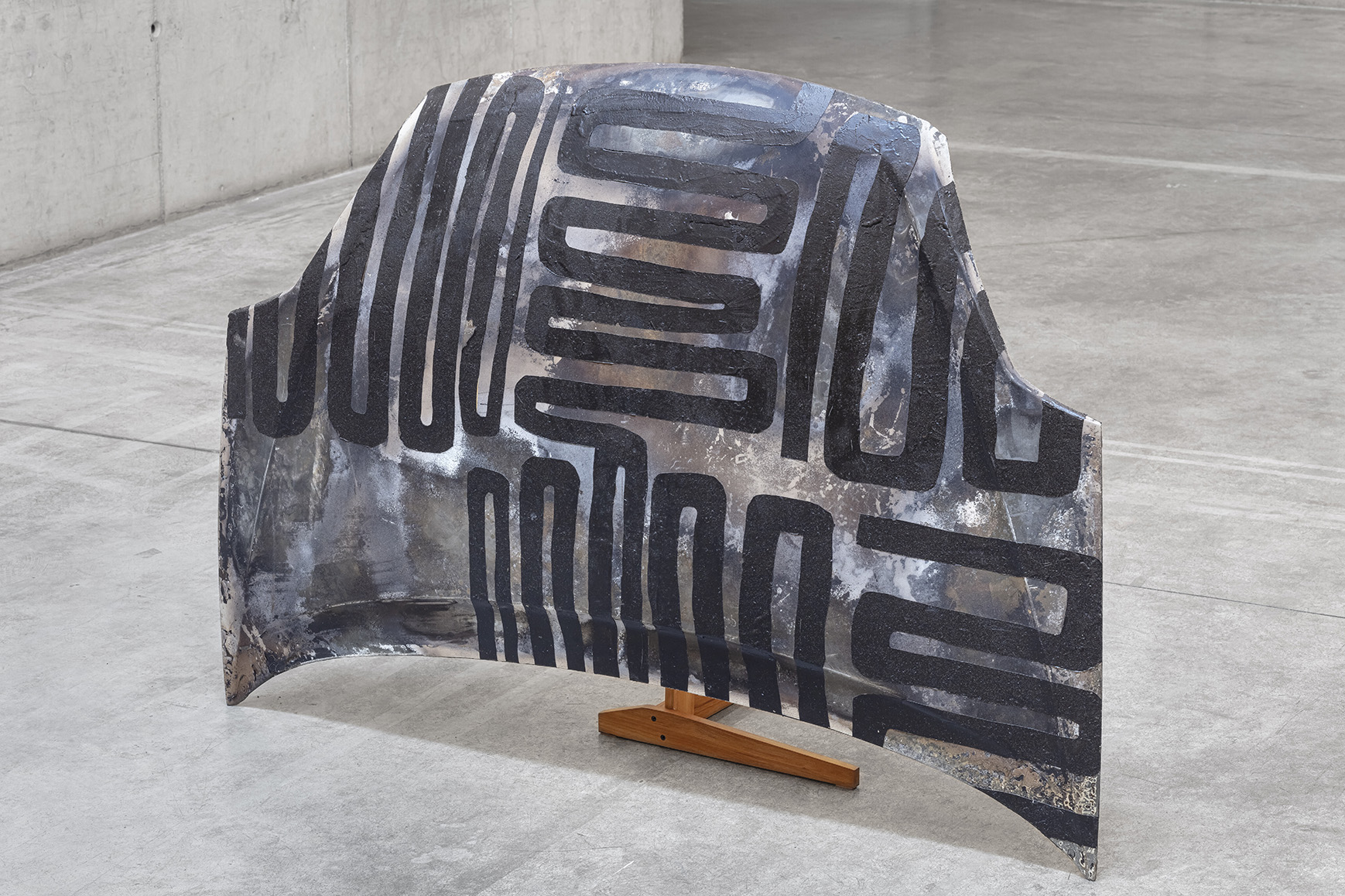
 .
.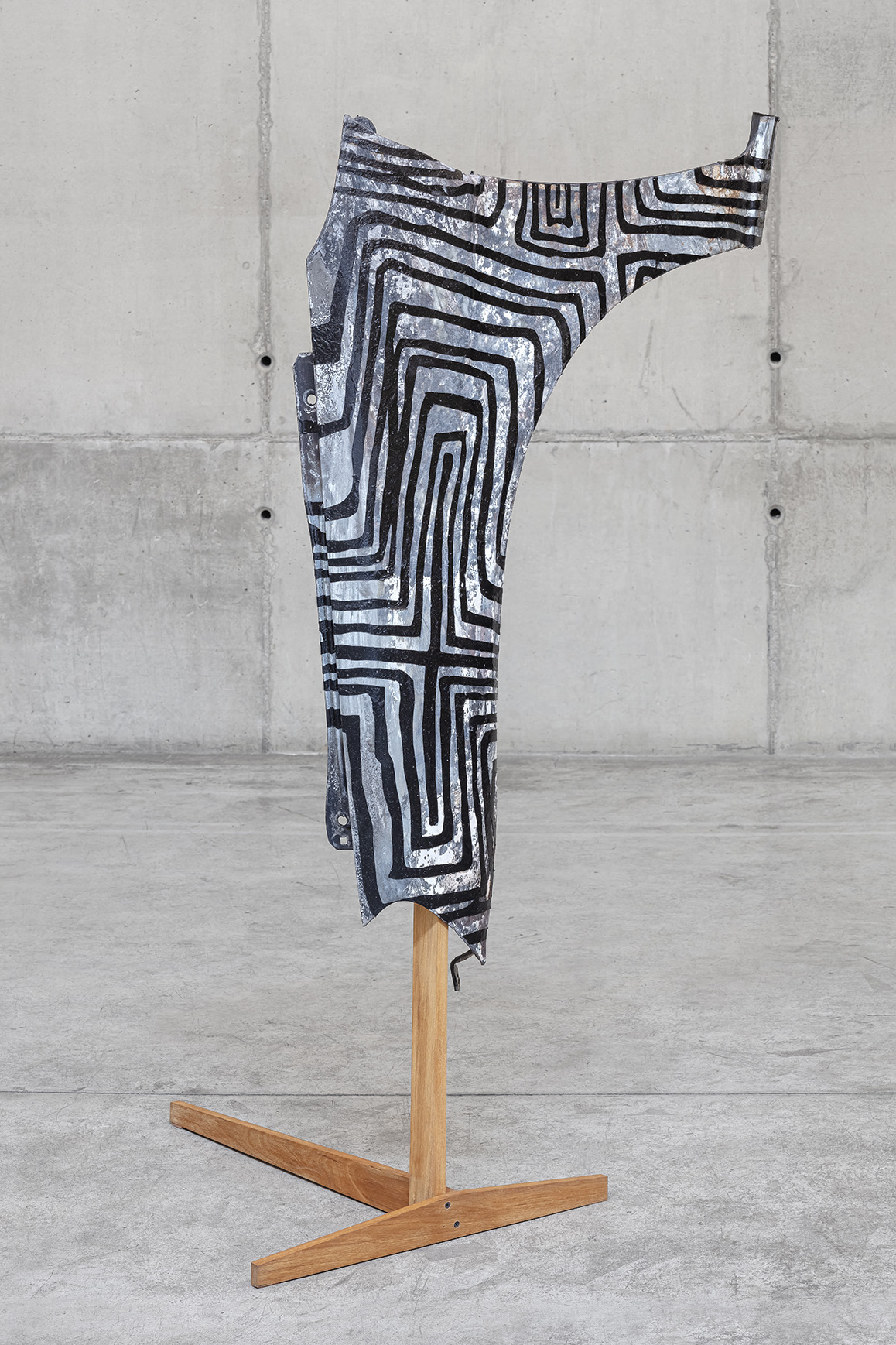
Hunt, 2020
Part of the No man's land exhibition, at Galeria Leme, 2020.
There is a certain kind of war ruins in the forest: vehicles, tractors, trucks, warehouses, all of them incinerated in land conflicts between locals, invaders, loggers, squatters, prospectors and government agents.
A legal device in the Environmental Crimes Law seeks to affect finnancially illegal activities by burning infraestructure and machinery. Retaliation involves the same kind of payback with fire on indigenous communities and government equipment. All kinds of fire remains rests at the forest as whitness of irregular occupation for primary extraction of commodities.
“Game Meat” also deals with fire. But not that lively, red, active fire. This sculptures brings a past fire, black soot, resulting after the fire vanishes. The car parts are burned then marked with hand drawn, irregular, geometrical motifs with asphalt. This graphics recall – though they don’t mimic – a mixture of references, such as animal skins, as if they were the texture of stretched animal carcasses.
Hunt, fire vestiges, old carcasses scattered throughout the space. All this leads us to ancestral living forms, which through thousands of years were sovereign at the brazilian territory. Vehicles and asphalt, however, are industrial and modern living signs, distant from the ideal of nature. The sculptures aims to cross this significants.
Part of the No man's land exhibition, at Galeria Leme, 2020.
There is a certain kind of war ruins in the forest: vehicles, tractors, trucks, warehouses, all of them incinerated in land conflicts between locals, invaders, loggers, squatters, prospectors and government agents.
A legal device in the Environmental Crimes Law seeks to affect finnancially illegal activities by burning infraestructure and machinery. Retaliation involves the same kind of payback with fire on indigenous communities and government equipment. All kinds of fire remains rests at the forest as whitness of irregular occupation for primary extraction of commodities.
“Game Meat” also deals with fire. But not that lively, red, active fire. This sculptures brings a past fire, black soot, resulting after the fire vanishes. The car parts are burned then marked with hand drawn, irregular, geometrical motifs with asphalt. This graphics recall – though they don’t mimic – a mixture of references, such as animal skins, as if they were the texture of stretched animal carcasses.
Hunt, fire vestiges, old carcasses scattered throughout the space. All this leads us to ancestral living forms, which through thousands of years were sovereign at the brazilian territory. Vehicles and asphalt, however, are industrial and modern living signs, distant from the ideal of nature. The sculptures aims to cross this significants.